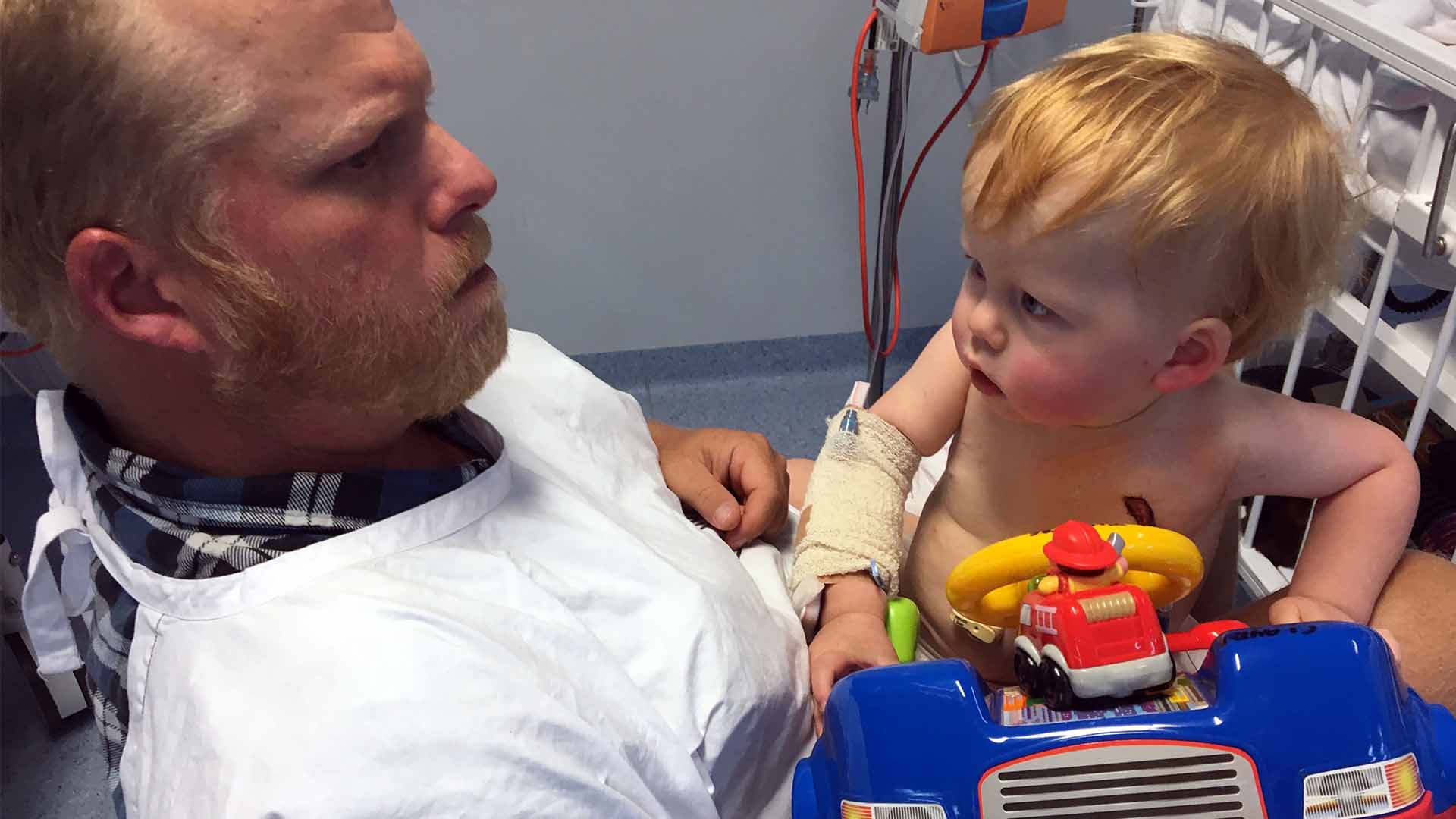
15%.
That’s how many people on the list for an organ donation in Australia die while waiting for a transplant. It’s a chilling statistic.
Activist-documentarian Richard Todd’s latest work, Dying to Live, calls for Australia to catch up with other countries when it comes to organ and tissue donor registration numbers. There are four stories told in the film, which screens at Adelaide Film Festival, that might make a difference.
Zaidee died tragically at the of age seven but her organs have saved the lives of seven other people. Holly has cystic fibrosis and now a new set of lungs. Tattooed bikie Woody, arms scarred from years of dialysis, awaits a third kidney transplant. Kitty needs a pancreas and kidney transplant, but as she reaches the top of the waiting list she is dropped back down with other health issues. Organ donation is simply, and urgently, heart-wrenching stories of real people. Why must they wait for so long? Are changes in policy required, or shifts in perception? What does it take to support a desperate family member running out of time as they hope for a stranger’s generosity?
We caught up with Todd to discuss Dying to Live.
Adelaide Film Festival: This is quite a change of direction from your earlier work, such as Frackman. What drew you to the topic of organ donation?
Richard Todd: I was watching a morning show and Allan Turner was talking about how he’d lost his seven-year-old daughter Zaidee to a brain aneurysm, and it really came out of nowhere. At that stage, I actually had a daughter who was seven years old and just the whole idea of losing someone – knowing what it would be like at that age – quite affected me.
Zaidee’s story ended up as motivation for the doco, and then within that story they mentioned the fact that over 80% of Australians said they would donate [organs], but when it came to the Organ Donor Register, only 34% of people were on it. It just feels really fixable.
Those statistics are alarming. Is it a cultural problem, with people not wanting to talk about death? Or do you believe it’s a structural issue?
I think it’s a combination. I think you’re right about the apathy of wanting to bring up a conversation around death. From a cultural perspective in Australia, it’s just not dinner conversation so we just don’t talk about it until – like in the instance of organ donation – often when it’s too late. Or it’s when people that you know or love have become really sick, then all of a sudden, that conversation does start to occur. But in general… people avoid it.
From a structural perspective, I think one of the problems is, in the early 2000s, it [organ donation] was slowly removed from driver’s licences by all of the states except for South Australia. You have to actually proactively go online and sign-up, and even though that’s a really quick process, what makes you all of a sudden one day go and do it?… I think we, as a nation, have to think about how we make that decision to go online and sign up. And hopefully the film will instigate the reason to do that.
The stories in the documentary are very personal. How did you approach them with sensitivity?
A big part of it was the relationship. The people in the film, I have to have a real connection with. And not only a personal connection, but hopefully be a friend of yours and someone who engages you in a conversation. The second part – which is more important – is that they trust me with the telling of that story, because it is such a sensitive story to tell. Whenever you are involved in someone’s life where they have really serious health issues – and the potential for someone living or dying is really part of their daily routine – if the trust isn’t there in regards to our relationship and my telling of the story… it doesn’t work.
How did the process of making Dying to Live compare with other documentaries you’ve worked on?
It was the toughest, yet the most rewarding, documentary I’ve made thus far. This is about life and death, and the waiting game – and how that not only affects the person who’s waiting for a transplant, but how it affects the families that donate, and how it affects friends and families around both the recipients and donors. It keeps spiralling out because the stakes are so high.
It really is a very emotionally draining – yet emotionally rewarding – subject to be involved in.
Back